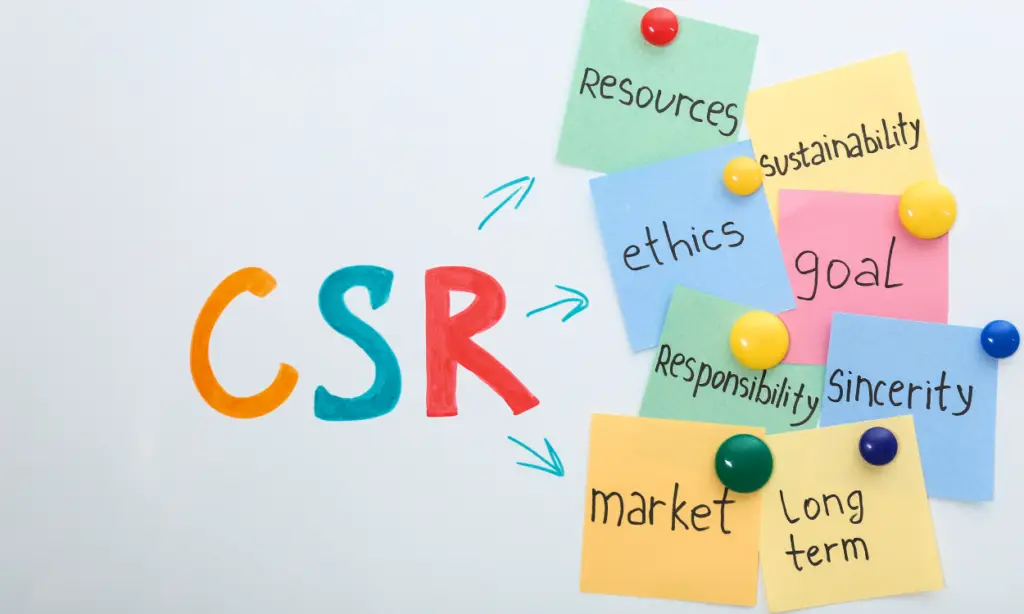
Corporate Social Responsibility (CSR) has evolved from a mere buzzword into an essential component of global business strategies. Today, organizations worldwide recognize the importance of extending their responsibilities beyond legal requirements. They aim to enhance communities’ well-being, reduce their environmental footprint, and promote positive social change. In this spotlight, we delve into impactful CSR initiatives undertaken by companies across various industries.
Google’s renewable energy commitment is to use 100% renewable energy by 2030. In other words, the company will match its global electricity consumption with purchases of renewable energy, such as solar and wind power. Google’s investing in renewable energy started back in 2010, when it became the first major corporation to purchase renewable energy directly from renewable energy projects. Google has so far contributed to more than 30 renewable energy initiatives worldwide. It is an ambitious goal, but one that may be achieved with the help of several partners, including utilities, governments, and providers of renewable energy.
Some of the ways to achieve this commitment and contribute to the transition to a clean energy future include investing in renewable energy projects such as solar and wind farms and geothermal plants, as well as the development of new renewable energy technologies (e.g., solar panel technologies) to store renewable energy.
Adidas
Adidas is fighting the plastic epidemic and collaborating with Parley to recycle plastic waste into high-performance athletic clothing. Their collaboration resulted in the creation of the Adidas x Parley Ultraboost running shoes, which are made from recycled ocean plastic. They have also planned the Run For The Oceans activities since 2018. For every kilometer run, Adidas donates a certain amount of money to the Parley Ocean School program, which educates and empowers young minds about the importance of ocean sustainability. In addition, they collaborate with Greenpeace on the DETOX Campaign, which aims to remove hazardous chemicals from global supply chains.
IKEA
IKEA believes that social responsibility begins with the components that go into making its products, such as sustainable timber, cotton, and wool. By 2030, they intend to exclusively utilize plastic that is recycled or renewable. They help more households escape poverty by creating sustainable income through the IKEA Foundation. They provide funding for initiatives addressing emergency preparedness, jobs and entrepreneurship, agricultural livelihoods, and climate change.
Ben & Jerry’s
Ben & Jerry’s donates $0.05 from each 1L tub sold to charitable causes. They have contributed to numerous social initiatives that are directly tied to their ice cream manufacturing and sales company. Their pursuit of justice includes work on behalf of refugees, the LGBTQ community, the environment, and other groups. Additionally, they contribute a portion of their pre-tax earnings to business-related charitable endeavors. Community Action Teams (CATs) at the site locations and the Ben and Jerry’s Foundation work together to accomplish this.
Apple
In an effort to educate and empower girls, Apple has been a partner of the Malala Fund since 2018. Through this partnership, Apple has pledged to support the Fund’s mission of providing safe and quality education for girls in underprivileged communities. For example, Apple and the Malala Fund collaborated to create a mobile app that allows girls in remote areas to access educational resources and connect with teachers online. This app has empowered thousands of girls to continue their education despite barriers such as distance and cultural norms. Additionally, Apple has funded the construction of schools in underserved communities, ensuring that girls have a safe and conducive learning environment.
Coca-Cola
Coca-Cola donates at least 1% of its annual operating income to charitable causes and endeavors. Since 2014, it has helped provide clean water for drinking to refugees in the Middle East through Arwa’s “Price of Water” campaign. Initiations aimed at empowering women have also received active assistance from Coca-Cola. They have collaborated with groups like UN Women to advance gender parity and give women access to the workforce. Coca-Cola has made great strides toward its objective of assisting 5 million female entrepreneurs by giving them access to resources and training in business through its “5by20” program as of September 2021.
Alaska Airlines
Alaska Airlines provides nonprofit organizations with in-kind transportation donations when they travel to raise money for their causes. Alaska Airlines partnered with the American Cancer Society to provide free flights for cancer patients who needed to travel for treatment, easing the financial burden on families during difficult times. Moreover, their CSR initiatives center on supporting groups that work with underprivileged youth to assist them in reaching career aspirations, organizations that work with underrepresented demographics, and environmental organizations.
DELL
DELL promotes change on a global scale using its technologies and knowledge. In 2019, their employees volunteered 5 million hours for causes in their neighborhoods. Their innovations revolutionized the Indian government’s preventative healthcare system and allowed for the delivery of quicker treatments for seriously ill children in rural areas. Additionally, DELL partners with non-profit organizations to provide computer literacy programs for underprivileged youth, equipping them with essential skills for future career opportunities in the technology industry.
The Walt Disney Company
Another inspiring brand is the Walt Disney Company. The organization has tangibly proven its support for charities that focus on children’s health and education. They have funded the construction of hospitals and clinics in developing countries, providing access to medical care for thousands of children who would otherwise go untreated. Additionally, Disney has established numerous scholarship programs and mentorship initiatives to support underprivileged youth in pursuing their academic and career goals. Furthermore, their CSR initiatives are aimed at inspiring and fostering happiness in more kids. In addition to supporting Girls Who Code since 2015 and Snap the Gap (a program aiming at strengthening girls’ confidence and skills), they have granted the desires of over 130,000 sick children.
Microsoft
Microsoft provides CSR programs that focus on enhancing employability and skills as well as environmental sustainability. Through Microsoft Philanthropies, they collaborate with charities, institutions, and educational institutions to enhance computer science instruction and increase social impact. Since employee giving plays a significant role in the working culture of the company, Microsoft workers also support causes in their local communities. They not only provide money but also volunteer their time and talents for organizations. Microsoft matches employee contributions in both money and volunteer hours.
These examples highlight how companies have embraced CSR as a means to benefit society, the environment, and their own businesses. Engaging in CSR initiatives enhances a company’s reputation, making it more appealing to customers, investors, and potential employees. Furthermore, it attracts and retains top talent seeking purpose-driven organizations. CSR initiatives also build customer loyalty, as consumers prefer companies that align with their values and demonstrate a commitment to social and environmental responsibility.

Building a successful CSR strategy is an ongoing process that requires dedication, genuine commitment, and a long-term perspective. It starts with identifying the key social and environmental issues that align with the company’s values and core business. This involves conducting thorough research, engaging stakeholders, and setting clear goals and objectives. Additionally, effective communication and transparency are crucial to engaging both internal and external stakeholders and building trust in the company’s CSR efforts. By regularly evaluating and monitoring the progress of CSR initiatives, companies can ensure that they are making a positive impact and continually improving their practices.
This may involve measuring and reporting on key performance indicators, conducting regular audits, and seeking feedback from stakeholders. Furthermore, collaboration with other organizations and industry peers can help companies leverage resources and knowledge and tackle complex sustainability challenges on a larger scale. Ultimately, successful CSR requires a holistic approach that integrates social and environmental considerations into the company’s overall business strategy.
Corporate Social Responsibility is no longer optional for businesses; it’s an integral part of their identity and purpose. The inspiring stories highlighted here illustrate the remarkable impact that companies can achieve when they commit to making a positive difference in the world.
Companies that actively embrace CSR not only contribute to the betterment of society and the environment but also secure their position as leaders in an increasingly conscious and interconnected world. As businesses continue to innovate and adapt, the impact of CSR initiatives will ripple through communities, shaping a more sustainable and equitable future for all.
At EcoSkills, we are thrilled to offer a variety of online learning experiences to help you understand, apply, and communicate sustainable practices in your personal and professional lives. If CSR initiatives motivate you and you wish to deepen your understanding while acquiring new skills in environmental, social, and governance (ESG), which quantifies such social efforts, explore our certified online courses, and join us in striving to empower a network of green talents.
